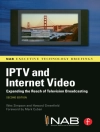Backscattering and RF Sensing for Future Wireless Communication
Discover what lies ahead in wireless communication networks with this insightful and forward-thinking book written by experts in the field
Backscattering and RF Sensing for Future Wireless Communication delivers a concise and insightful picture of emerging and future trends in increasing the efficiency and performance of wireless communication networks. The book shows how the immense challenge of frequency saturation could be met via the deployment of intelligent planar electromagnetic structures. It provides an in-depth coverage of the fundamental physics behind these structures and assesses the enhancement of the performance of a communication network in challenging environments, like densely populated urban centers.
The distinguished editors have included resources from a variety of leading voices in the field who discuss topics such as the engineering of metasurfaces at a large scale, the electromagnetic analysis of planar metasurfaces, and low-cost and reliable backscatter communication. All of the included works focus on the facilitation of the development of intelligent systems designed to enhance communication network performance. Readers will also benefit from the inclusion of:
* A thorough introduction to the evolution of wireless communication networks over the last thirty years, including the imminent saturation of the frequency spectrum
* An exploration of state-of-the-art techniques that next-generation wireless networks will likely incorporate, including software-controlled frameworks involving artificial intelligence
* An examination of the scattering of electromagnetic waves by metasurfaces, including how wave propagation differs from traditional bulk materials
* A treatment of the evolution of artificial intelligence in wireless communications
Perfect for researchers in wireless communications, electromagnetics, and urban planning, Backscattering and RF Sensing for Future Wireless Communication will also earn a place in the libraries of government policy makers, technologists, and telecom industry stakeholders who wish to get a head start on understanding the technologies that will enable tomorrow’s wireless communications.
Cuprins
* 1. Intelligent Reflective Surfaces – State of the art
Jalil ur Rehman Kazim, Hasan T. Abbas, Muhammad A. Imran, Qammer H. Abbasi
* 2. Signal Modulation Schemes in Backscatter Communications
Yuan Ding, George Goussetis, Ricardo Correia, Nuno Borges Carvalho, Romwald Lihakanga, and Chaoyun Song
* 3. Electromagnetic Waves Scattering Characteristics of Metasurfaces
Muhammad Ali Babar Abbasi, Dmitry E. Zelenchuk, Abdul Quddious
* 4. Metasurfaces Based on Huygen’s Wave Front Manipulation: A review
Abubakar Sharif, Jun Ouyang, Ayman Abdulhadi Althuwayb, Kamran Arshad, Muhammad A. Imran, Qammer H. Abbasi
* 5. Metasurface: An Insight into Its Applications
Fahad Ahmed and Nosherwan Shoaib
* 6. The Role of Smart Metasurfaces in Smart Grid Energy Management
I. Safak Bayram, Muhammad Ismail, and Raka Jovanovic
* 7. Passive UHF RFID Tag Antennas Based Sensing for Internet of Things Paradigm
Abubakar Sharif, Jun Ouyang, Kamran Arshad, Muhammad A. Imran, Qammer H. Abbasi
* 8. RF Sensing for Healthcare Applications
Syed Aziz Shah, Hasan Abbas, Muhammad A. Imran and Qammer H. Abbasi
* 9. Electromagnetic Wave Manipulation with Metamaterials and Metasurfaces for Future
Communication Technologies
Muhammad Qasim Mehmood, Junsuk Rho, and Muhammad Zubair
* 10. Conclusion
Qammer H. Abbasi, Hasan T. Abbas, Akram Alomainy, and Muhammad A. Imran
Despre autor
Qammer H. Abbasi, is Senior Lecturer (Associate Professor) and Deputy Head of Communications Sensing and Imaging Group in the James Watt School of Engineering at the University of Glasgow, UK.
Hasan T. Abbas, Ph D, is a Lecturer at the James Watt School of Engineering, University of Glasgow, UK. His research interests are focused on plasmonics, numerical methods in electromagnetics and healthcare analytics.
Akram Alomainy, Ph D, is a Reader in Antennas & Applied EM at Queen Mary University, UK. He is Associate Editor for IEEE AWPL and IEEE J-ERM and leads Wearable Technology and Creativity Research.
Muhammad A. Imran is Dean at the University of Glasgow, UESTC, Professor of Communication Systems and Head of Communications Sensing and Imaging Group in the James Watt School of Engineering at the University of Glasgow, UK.












